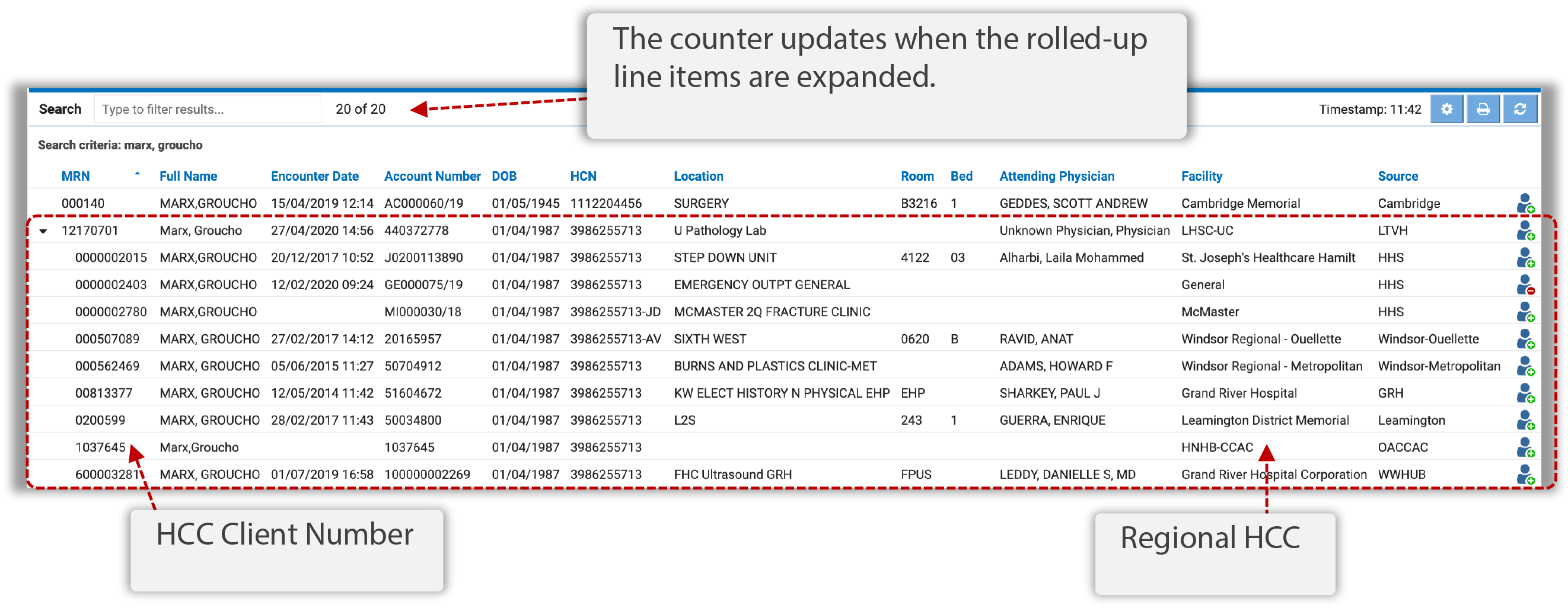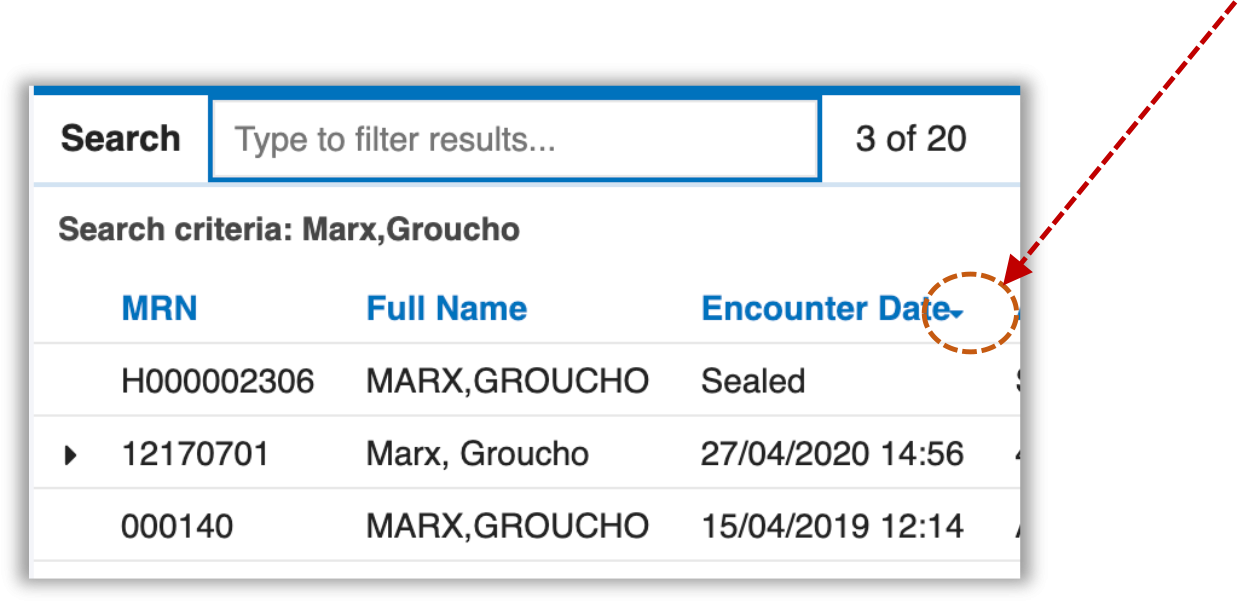Resource Centre - Patient Search Results
Video Tutorial
When using the Simple Search function, patient search results now display in a rolled-up list view if the patient you searched for has multiple visits at facilities across Ontario. The search results will roll up the patient’s encounters only when there is an exact match of the patient’s Last name, Date of Birth and Health Card Number across all encounters. If there is a mismatch in any of the three matching criteria, the patient’s non-matching record(s) will not roll up and will remain listed as separate line items. The rolled-up search results will always display the most recent encounter from the source facility as the first line item, as shown in the example below. This functionality makes the search results list much shorter and more efficient when selecting the correct patient record.
![]() Selecting any patient’s encounter from the rolled-up or expanded search results, will display the integrated record for that patient from all contributing sources that are included in the rolled-up list (based on your default user preference filters). Users do not have to select each individual encounter to view all information.
Selecting any patient’s encounter from the rolled-up or expanded search results, will display the integrated record for that patient from all contributing sources that are included in the rolled-up list (based on your default user preference filters). Users do not have to select each individual encounter to view all information.
To expand the rolled-up list and view all matching records for the patient, click the Expand icon to the left of the patient’s line item.

In the example above, there are three result items related to the name search Marx, Groucho however two of the line items do not match the patient’s HCN or the DOB and are considered as separate patient records. In addition, if a patient’s record presents as sealed or confidential, it will not be rolled up and will be displayed separately as shown above.
Once expanded, the patient’s encounters from various source facilities will display in the list. When viewing the patient’s encounters, take note of the Facility and Source columns as they are not a part of the roll up criteria but may be helpful to see the patient’s previous encounters.

Home and Community Care Encounters
The patient search results also include any Home and Community Care (HCC) encounters and display with the specific regional HCC in the facility column with the Ontario Association of Community Care Access Centres (OACCAC) in the source field as shown above. If the patient has HCC services from across all four regions, each encounter will be identified in the facility field.
![]() For HCC patients, the Client Number can also be used in the Simple Search.
For HCC patients, the Client Number can also be used in the Simple Search.
Scrolling For More Information
The search results view has several columns of important patient information and depending on the size of your display, it may require you to scroll to the right to see additional columns of data.

Sorting Search Results
Search results can be sorted by any of the available information columns displayed in the view. By default, the search sort order is set up to display the most recent patient encounter in your search results and this will be indicated by the ascending/descending sort arrow beside the column title.

Clicking a column title once will sort the results in ascending order. Clicking the same column title a second time will sort the results in descending order.
Example: To sort search results by encounter date click the Encounter Date column header. This will order the search results by the date the patient encounter occurred, starting with the oldest encounter (ascending order). To display the most recent encounter, click the Encounter Date column header again to sort the search results most recent encounter (descending order).
![]() You can change your search list sort order preferences default if needed by using the preference
You can change your search list sort order preferences default if needed by using the preference  icon to set your search list defaults.
icon to set your search list defaults.
Accessing the Patient’s Record
To access the patient’s record from the search results, click the record you want to view from the search results list.

![]() The Visits module displays all patient encounters from all hospital sources and facilities, including future visits if available from the source systems and can be helpful when reviewing the patient’s visit history. The Visits module can be accessed from the Clinical Modules menu.
The Visits module displays all patient encounters from all hospital sources and facilities, including future visits if available from the source systems and can be helpful when reviewing the patient’s visit history. The Visits module can be accessed from the Clinical Modules menu.
 Return to Resource Centre
Return to Resource Centre